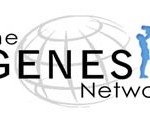Buoyed by a recent donation of $15,000 by the Direct Aid Program of the Australian Embassy in Bangkok as well as other funding, the GENESIS Network’s Kid Launch program has begun construction of its second school in Baan Phai Du, Chiang Mai province, Thailand.
Construction officially broke ground on January 31 for the facility, which will provide education to an additional 100 children alongside the about 200 already covered in Baan Phai Du. The total number covered by Kid Launch in its entirety will be nearly 400.
Along with the Australian Embassy’s donation, funding of $4,200 from last May’s Menot-Ö-Fest event with Menotomy Beer and Wine in Arlington, MA as well as contributions from individuals made the construction of the new building possible.
The Kid Launch project was started in 2008 with the goal of bringing educational facilities and support to the Baan Phai Du village, which did not have a school prior to GENESIS intervention. Because of widespread poverty in the area, children are at special risk for falling into human trafficking including sexual slavery and other forms of forced labor.
According to the United Nations Interregional Crime and Justice Research Institute, the number of forced labor victims in the Thai sex industry is estimated to be 200,000 to 300,000, with many being children. The Institute also noted the largest internal trafficking route within the country is also from the country’s northern region, where Baan Phai Du is located.
International volunteers are assisting with the construction of the building, including a student-organized group from Beijing, China. Support for the ongoing effort, including donations, is still needed and appreciated, and information on how you can give is located here.
Also, please email contact@gnetwork.org for more information about volunteering as well as general inquiries about the GENESIS Network.
As always, GENESIS thanks its donors and supporters, without whom success would not be possible.








 Social Media: a new way of giving
Social Media: a new way of giving
